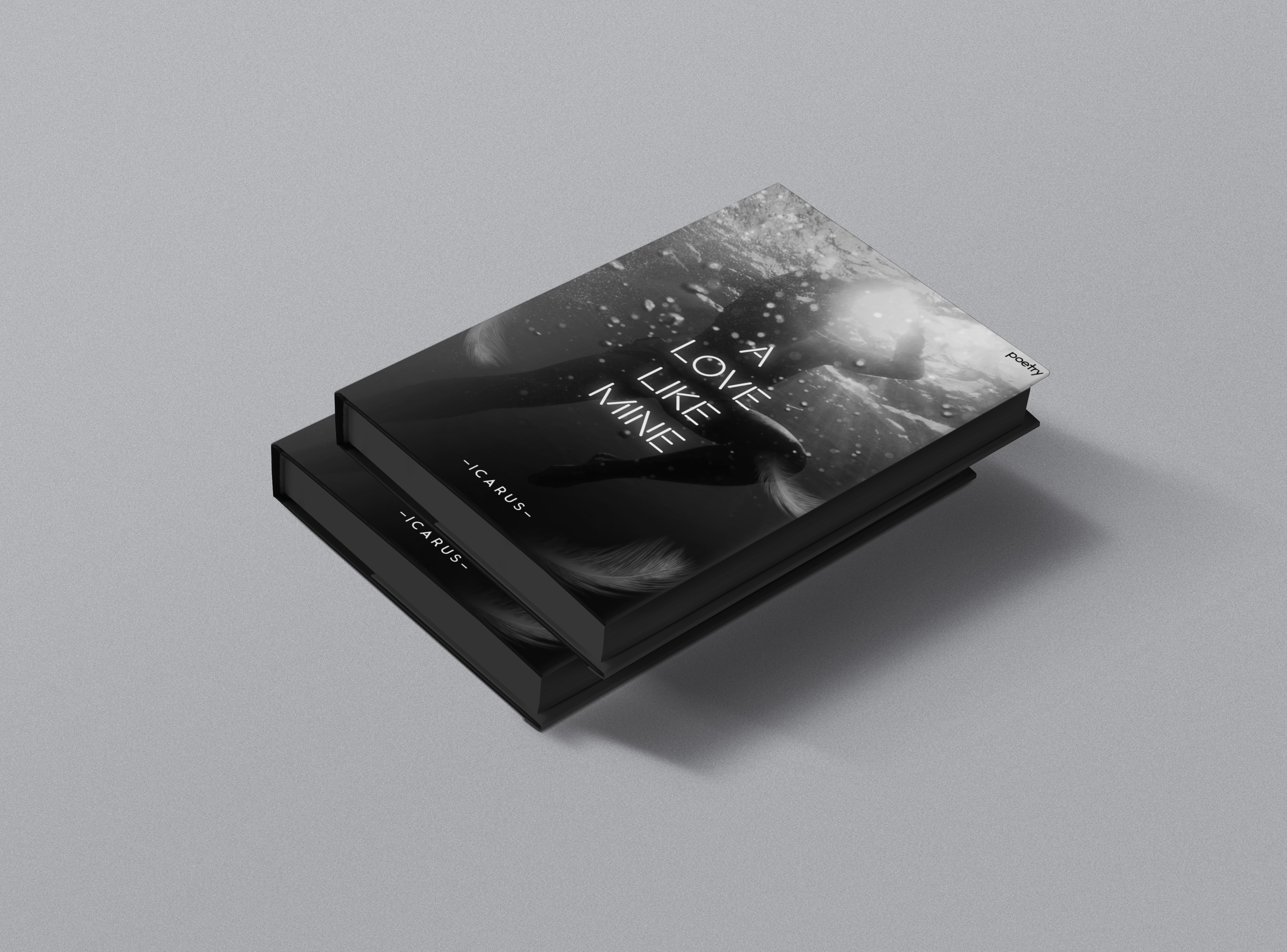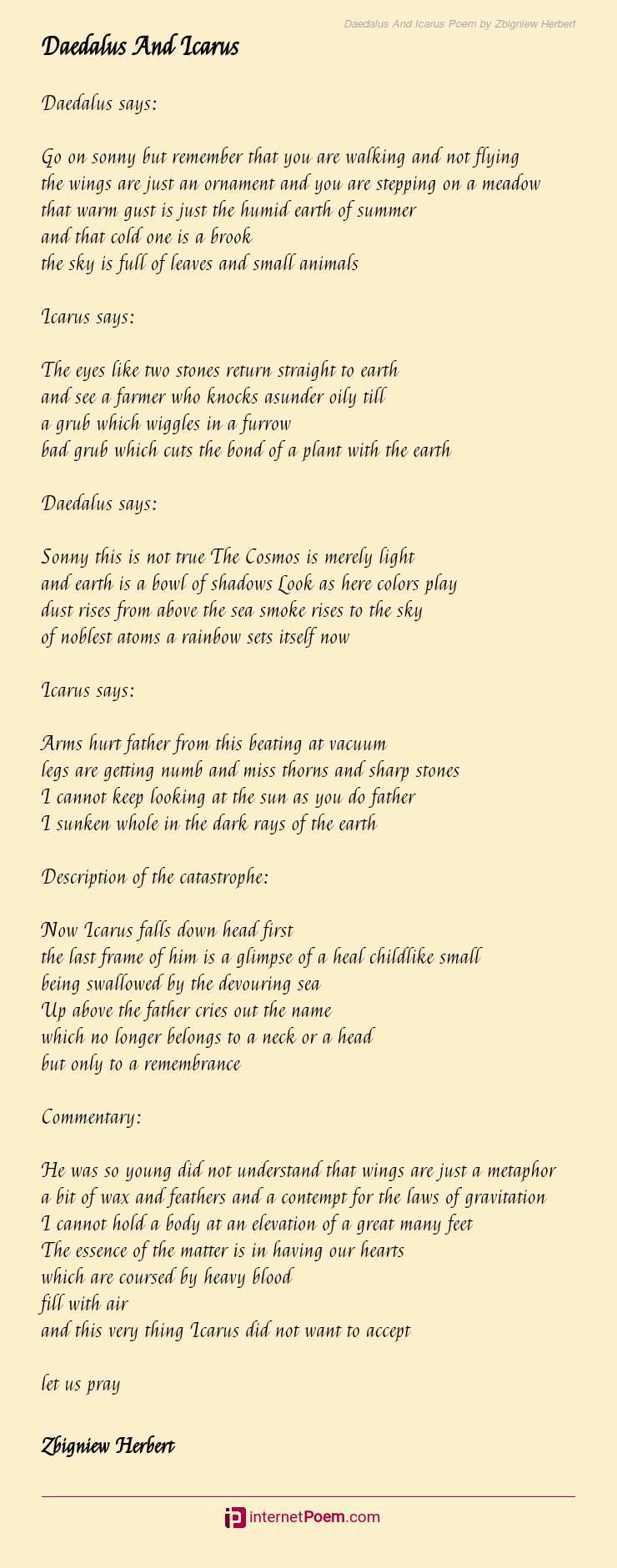

The imagery enforced here helps the reader to understand the harsh reality of Icarus’ fall to mediocrity. This use of imagery shows how Icarus is quickly forgotten and his peers have a carelessness towards his new persona as “Mr. Right away imagery illustrates Icarus’ hard fall into the contemporary world when he goes from a hero to a “report filed and forgotten” (l. The reader is able to easily understand and visualize the transition from the first stanza, which describes Icarus’ tragic death and implies the differences between his traditional home and his new home, to the third stanza, where imagery deprecates his life in the new world. Icarus’ fall to mediocrity is also emphasised through Field’s strong use of imagery. The transition to mediocrity is worse than death to Icarus, and Edward Field emphasises this through the use of euphemism. His life changes from “compel the sun” (l. Icarus is portrayed as a hero in Greek mythology, so when he is transformed into the vastly different, mediocre world, it is his ultimate fall. 20), not to his tragic death, but rather “to the middling stature of the merely talented” (l. Field uses euphemism to describe Icarsus’ “hero fall” (l.

Icarus provides a strong message to readers about reaching for the stars, but being able to pick yourself up after you fall. Field uses euphemism, imagery, dictation, and irony to tell the story of a young adventeurer who is unable to overcome his tragic defeat. His only failure turns out to be his worst failure of all and Icarus cannot get up after this final fall. The once fearless and ambitious Icarus, takes his risk taking too far and finds himself miserable and trapped. In the poem Icarus, by Edward Field, a Greek mythological character is placed in the bustling, ironic reality of the modern world. The modern world has certainly evolved from the time of ancient Greece. I could start to talk of the ideas of the flesh and the loquacity of the body.Ironic Reality of the Modern World in Poem “Icarus” Analysis The attempt itself, of course, was strikingly unplatonic, but there remained only one more experience for me to pass through before At that stage, the attempt to project words onto the body was already only a stone’s throw away. For it meant that I was recognizing the identical origin of the formal beauty in the wordless body and the formal beauty in words, and was beginning to seek a kind of platonic idea that would make it possible to put the flesh and words on the same footing.
#Icarus poem full
From the moment I set the wordless body, full of physical beauty, in opposition to beautiful words that imitated physical beauty, thereby equating them as two things springing from one and the same conceptual source, I had in effect, without realizing it, already released myself from the spell of words. “By setting my fetish for reality and physical existence and my fetish for words on the same level, by making them an exact equation, I had already brought into sight the discovery I was to make later. Or vainly assuming that already I knew all īoth of them a single, blue speck of an idea?” Too earger to know where lay my allegiance On account of the fleeting, white-hot intoxicationĪnd did the heavens abet the plan to punish me? Was it devised by the earth, to which I belonged, More natural by far than that improbable passion? That to fall, not to fly, is in the order of things,

Show such swiftness to encompass my fall? Nor have I longed for the ease of Nature,ĭriven by naught save this strange yearningįor the higher, and the closer, to plunge myselfĭazzled, perhaps, by the dizzy incandescence I am drawn higher and higher, more unstable,Ĭloser and closer to the sun's effulgence.Īlthough the goal could never have been love, Why, still, should the lust for ascension Till no aberrant element should, by rights, remain. Why, when balance has been strictly studiedĪnd flight calculated with the best of reason

Fix me thus with their ceaseless blue stare,


 0 kommentar(er)
0 kommentar(er)
